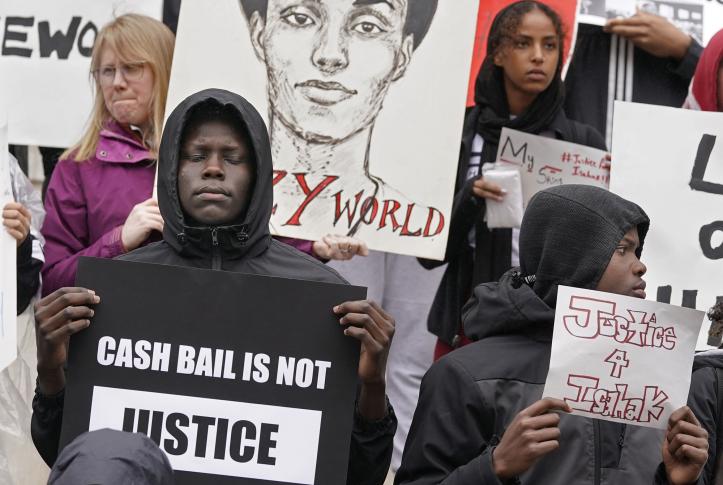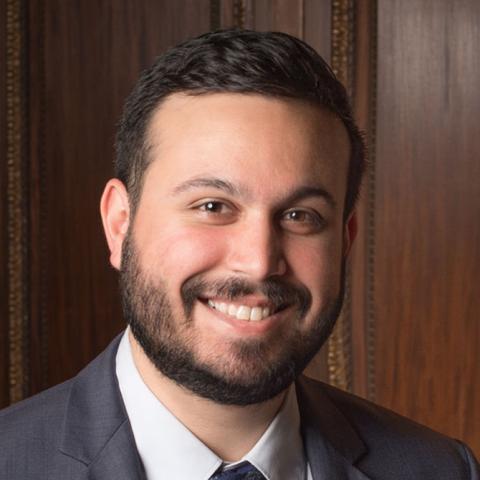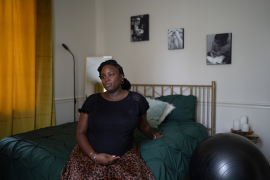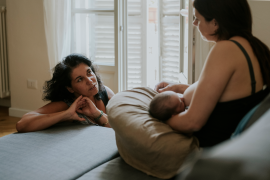For nearly three weeks, hundreds of thousands of Americans have taken to the streets protesting police brutality against Black people. More than 10,000 protesters have been arrested, many for low-level offenses such as curfew violations and failure to disperse.
Once locked up, many people must pay cash bail to be released from detention. The amount of bail is determined by the court. Research suggests racial bias against Black defendants plays a part in the level of bail set by the court. At a time when jails and prisons across the U.S. have seen widespread outbreaks of coronavirus, the cash bail system poses an unnecessary health risk.
Who does the cash bail system affect most?
Almost half a million people — three-quarters of the total number of people in jails — have not been convicted of a crime. Of these, 90 percent — the poorest Americans with the fewest resources — remain incarcerated because they cannot afford bail.
The cash bail system disproportionately impacts people of color, fueling a pervasive problem of structural racism in our criminal justice system. The pretrial population is disproportionally Black and Hispanic and has more than doubled over the past 15 years.1 Black and Hispanic Americans are more likely to be stopped by the police and experience police violence at the time of arrest; they also are more likely to be poor and unable to raise bail funds. The cash bail system also compounds underlying health disparities in access to care that has led to worse outcomes for Blacks and Hispanics compared to white Americans.
How does the cash bail system affect health and health care systems?
Keeping people in jail if they cannot afford cash bail is bad for their health. A well-documented body of research describes the negative health outcomes associated with and amplified by incarceration. This includes higher rates of HIV, hepatitis C, and tuberculosis. Incarcerated individuals also have a higher likelihood of chronic illness like hypertension, asthma, arthritis, and cervical cancer, as well as mental health issues such as anxiety, depression, and schizophrenia. Black Americans often have disproportionately high rates of chronic and infectious diseases because of other social factors; these conditions are compounded by the impact of the prison environment, poor quality health care in correctional facilities, and the fallout after release from incarceration, such as lack of access to housing and jobs and a high rate of poverty.
Jails and localities rely on secured bail money as revenue, creating a perverse incentive for police to make arrests. However, communities pay for the consequences of pretrial incarceration in many ways. Research has found that even short pretrial detention of two to three days may have negative effects on court appearance, conviction, sentencing, and future involvement with the criminal justice system. And, despite the incoming revenue, the system is expensive. Pretrial incarceration alone costs local governments and taxpayers an estimated $13.6 billion annually. Providing health care in jails is difficult and expensive and often is paid for by other local agencies.
Policy implications
Ending cash bail. Ending the cash bail system would allow state and local policymakers to address structural racism in a significant way.
In response to the COVID-19 pandemic, California eliminated cash bail for most low-level offenses. This allowed thousands of defendants to await trial at home rather than in crowded jails during a pandemic. Washington, D.C., New Jersey, and Harris County, Texas (i.e., including Houston, the third-largest jail system in the country) have reformed their pretrial systems by essentially ending cash bail. D.C. and New Jersey have released approximately 95 percent of defendants pretrial; nearly 90 percent of them appear at their trial dates. States and localities could eliminate cash bail for certain misdemeanors, nonviolent felonies, and other minor offenses, and explore different ways for defendants to reassure judges they will make their court appearances.
Diverting funds spent on pretrial incarceration to invest in social services. There is a clear financial case to be made for ending cash bail systems across the country — some portion of the funds could be reinvested in socials services. Investing in access to health care (i.e., primary care, mental health, addiction services), education, housing, transportation, employment services, and violence reduction at the community level can help better address the social determinants of health and structural racism afflicting Black and Hispanic communities.
Longer-term reform of the criminal justice system. Ending cash bail is one way to address the entrenched racism in the U.S. criminal justice system. People of color, especially Black people, committing minor traffic violations or misdemeanors are disproportionately likely to experience police violence and find themselves in jail. As the recent swell of nationwide protests after the death of George Floyd and others indicates, there is widespread public support for police and criminal justice reform. Such reform — starting with an end to the cash bail system — would have a positive impact on the health of many Americans of color and could help address structural racism.





